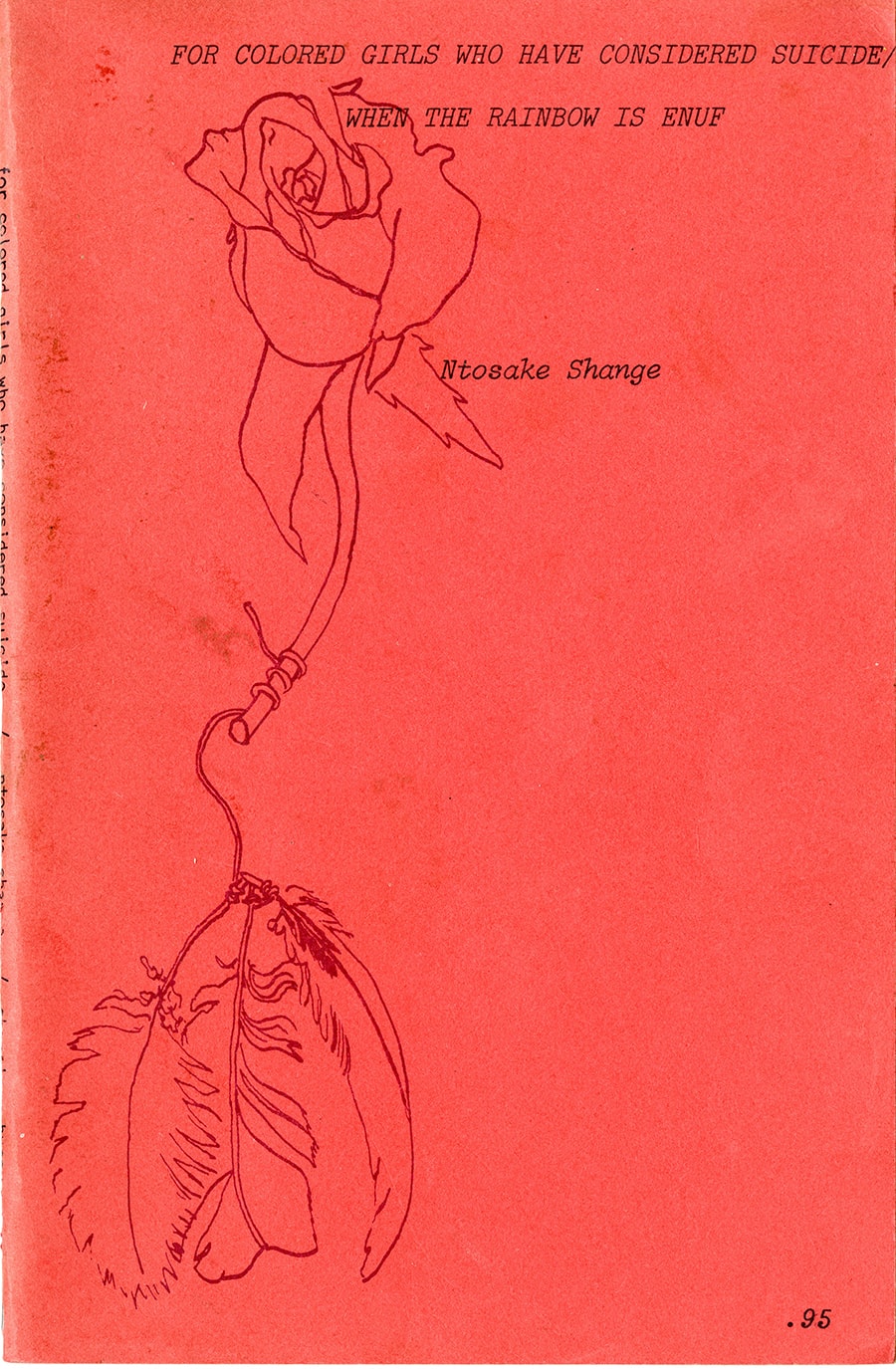On Variant Spellings
 When training students, teachers tend to stress standardization in spelling and grammar (remember all of those spelling tests?), but languages travel and some of its movements result in multiple valid spellings of the same world (think for example of differences between British & American English, i.e. “colour/color.”). Such differences are called “variant spellings.”
When training students, teachers tend to stress standardization in spelling and grammar (remember all of those spelling tests?), but languages travel and some of its movements result in multiple valid spellings of the same world (think for example of differences between British & American English, i.e. “colour/color.”). Such differences are called “variant spellings.”
After Paulette Williams remade herself into Ntozake Shange, she evidently spelled her name “Ntosake” as well as “Ntozake,” most likely the result of transliteration.

First edition of for colored girls printed by Shameless Hussy Press. Note spelling of her name.

Second edition of for colored girls with author’s name spelled “Ntozake” as we are used.
Some databases, like the Oxford English Dictionary, will let you use what are called wildcard characters that instruct the search engine to look for any variant in that place. (i.e. a search for “Nto?ake” or “Nto*ake” would yield hits on both spellings.)
So my TIP? Even thought archivists and librarians will often “correct” such variants when cataloguing, when searching electronic databases of primary materials, it is worth searching under both names because you never know what you will find. When searching the NYPL archives & manuscripts, I found one additional hit under “Ntosake.”
More exciting, when I searched Google Books for “Ntosake,” I found that Chicana Feminist Cherríe Moraga’s experience of hearing Zake read sparked a crucial moment of coming into consciousness/decolonization:



